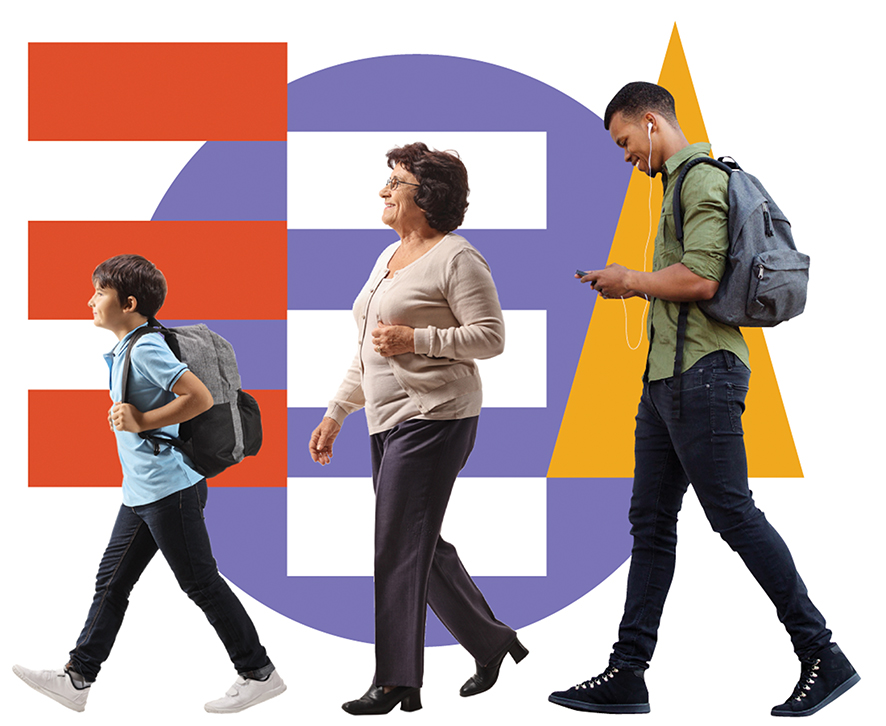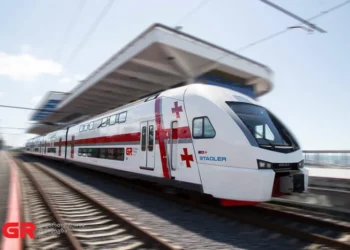The ‘Supporting education reforms and skills in the Eastern Partnership region’ program officially was launched at the end of May by the ETF and the European Commission’s Directorate-General for European Neighborhood and Enlargement Negotiations (DG NEAR). The launch took place at a three-day event in Turin focusing on peer learning and evidence-based policy making.
Education for the future: the ETF and DG NEAR share a common goal
An insightful session with participants from countries neighboring the European Union, EU Delegations and DG NEAR highlighted the importance of cooperation and partnerships between different actors in the education sector to achieve concrete results in reforms at national level.
“This event is not only about the launch of this transformative initiative in the Eastern Partnership region, but also a celebration of a comprehensive commitment to education and skills development from all the players. As the ETF, we recognize the unique needs of each partner country and advocate for multiple approaches tailored to their specific contexts,” said Pilvi Torsti, ETF Director.
“Education is the cornerstone for building prosperous societies, and through joint efforts and innovative ideas we aim to create an education system that empowers individuals and fosters a better future for all,” she added.
The initiative started as a recommendation from the ETF-DG NEAR joint work in 2019, Christophe Masson, Inclusive Societies Team Leader at DG NEAR recalls.
“I am happy it is now a reality, as it represents a crucial step towards high-impact reforms. By working at the level of system reforms, rather than projects, we can achieve a much greater impact,” Masson said.
“The cooperation between the ETF and DG NEAR is crucial. In these challenging times, we must seize opportunities to advance education, recognizing its role in inspiring future generations. Education is not neutral: when you have a teacher in the room, it is about sharing values, and they should inspire.”

Background: what is behind this new program?
The program, implemented in Armenia, Azerbaijan, Georgia, Moldova and Ukraine, is the first EU initiative focused on education in the region. With a budget of €2.5 million for the years 2024–26, it aims to have an impact at two main levels.
First, it focuses on improving the governance of education systems from pre-primary to tertiary, including vocational and adult education. This links to the goal of strengthening the capacity for evidence-based planning, management and performance monitoring in the education sector. Second, as highlighted by Timo Kuusela, ETF Senior Human Capital Development Expert and Eastern Partnership Coordinator, it should “inform the EU on priority needs and issues for policy dialogue and bilateral programming of the EU support”.
Iwona Ganko, ETF Human Capital Development Expert, emphasized the collaborative effort behind the initiative:
“In creating this program, we started to rethink and work hand in hand to make it happen. We really believe it can make a difference in countries. It’s not only about sharing experiences from EU Member States like France, Poland and Finland, but also about learning from each other within the region. We need to understand what is happening on the ground if we are to design the reforms effectively and support our stakeholders in the implementation.”
A key component of the program is the Rapid Education Diagnostic (RED) methodology. Marie Dorleans, ETF Senior Human Capital Development Expert, explained its importance.
“The RED methodology provides a structured framework for assessing and improving the effectiveness of education policies. It’s about identifying key issues and filtering useful information to ensure that our approach is comprehensive,” she said. “We focus on aspects such as social inequality, financing and governance, and integrate green and digital reforms as means to achieve broader educational goals.”
Although the Ukrainian delegation was unable to attend in person due to the Russian aggression to the country, the ETF visited Ukraine a few days prior.
“Last week in Kyiv, next one in Brussels: This tells a lot about the direction of our work,” remarked Director Torsti.
Further specific activities with Ukrainian partners are already planned under the program.
Bringing together the perspectives of the EU and partner countries
Two panel discussions highlighted the importance of two-way political dialogue between the EU and its neighboring regions.
The first panel, moderated by Georgios Zisimos, ETF Head of EU Policy Advice and EU Programming Unit, focused on the perspectives of EU representatives. Nika Kochishvili from the EU Delegation to Georgia, Giuseppe Paglione from the EU Delegation to Moldova, and Simone Rave from DG NEAR discussed the importance of ongoing policy dialogue and its impact on education reforms.
Zisimos underlined the link between policy advice and policy dialogue, stressing the need for continuous monitoring and evaluation.
“Our aim is to promote a dialogue that bridges the gap between policy formulation and practical application,” he said.
Panelists emphasized the need to integrate education discussions into broader sectoral policies to ensure a holistic approach to development.
The second panel brought together education ministry representatives from Eastern Partnership countries, including Robert Stepanyan from Armenia, Olga Tretiacov from Moldova, and Eteri Khanjaliashvili from Georgia. Participants shared their experiences and the importance of EU support in shaping their national education strategies. Zisimos concluded the session by underlining the reciprocal relationship between neighboring countries and the EU, which fosters mutual growth and development.
The program is structured around three main pillars: diagnostic assessment, capacity development and training and peer learning. Outlining upcoming peer-learning initiatives – including the one on teachers’ professional development in Helsinki in September 2024 and the one on optimization of school networks in 2025 – Kuusela emphasized the importance of all three pillars in driving sustainable change:
“By conducting thorough diagnostic assessments, building capacity and promoting peer learning, we can ensure that our efforts lead to meaningful and sustainable improvements in the education sector.”














